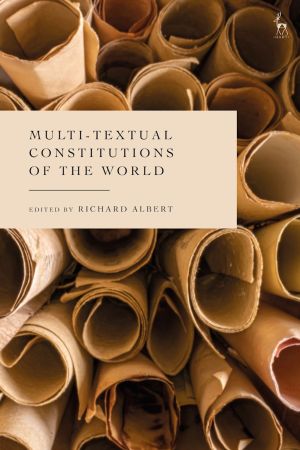
In this eye-opening study of the world's constitutions, scholars explain the creation, operation, revision, and replacement of multi-textual constitutions-a ubiquitous but woefully understudied constitutional form that is ever-present in many countries of the world but as-yet underappreciated in constitutional studies.
Constitutions are commonly said to be either “written” or “unwritten.” This distinction has long been the cornerstone of constitutional studies. Multi-Textual Constitutions of the World presents an alternative view: all constitutions are simultaneously written and unwritten, consisting of unwritten norms, practices, and principles on the one hand, and of written rules on the other.
Given that all constitutions consist of both written and unwritten elements, the conventional distinction between “written” and “unwritten” constitutions should be discarded once and for all because it obscures the actual form and content of constitutions. This book lights the path to a better distinction that more correctly reflects the key difference among constitutions: some constitutions consist of one authoritative document while others consist of more than one authoritative document.
Drawing from every major region of the world and featuring expert analysis from outstanding scholars, this book demonstrates that constitutions are better distinguished according to whether they are uni-textual or multi-textual.